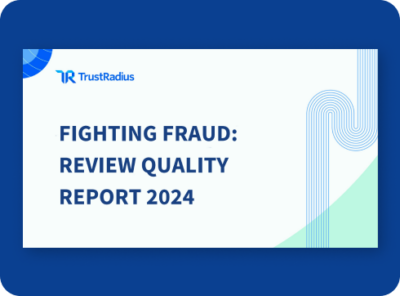
Building a Strong Brand Through Authentic Advocacy
For a bulletproof brand, authenticity matters
Building a brand is not about coming up with the perfect tagline or messaging. It is about creating unique and repeatable experiences that resonate with your target market. It’s the substance of what you have to offer, how you do business, and how others relate to you.
Your brand is not just the public face of your company, it is also the heart of your organization. It is what your buyers, customers, employees, applicants, and investors are drawn to. They develop a relationship with you based on your brand as much as they do your product. So your brand needs to be compelling and resilient. But it also needs to be dynamic, responsive and always evolving. Your stakeholders need to know they can rely on you, but also grow with you.
The best way to accomplish that is by embracing authenticity. When you have an authentic brand, people will identify with it, and they’ll talk about you. Skeptics and competitors won’t be able to poke holes in it, because it is built through real experiences. The right graphics and good messaging and a fun logo are important, but word of mouth around who you really are is what truly defines your brand. An authentic brand is believable, trustworthy, and hard to dispute.
Use advocates to build your foundation
Building your brand is a hands-on effort. Authentic doesn’t mean being passive. In fact, building an authentic brand starts with lots of active listening. You may think this is something you already do well — 84% of marketers say they actively listen, act of feedback, and close the feedback loop — but research shows your customers and buyers think you could do more to understand them and build a relationship. Here are four specific steps you can take to lay a strong, customer-centric foundation for your brand:
- Identify the customers who are willing to advocate for you. Rather than focusing on a few shining stars, you should go broad. A large and diverse groups of advocates will provide the best range of insights to help you synthesize your brand. But the odds are only a fraction of your customers have served as a reference, participated in a case study, mentioned you on social media, or written a review on their own. Figure out how to get your users on the record at scale, and give them an opportunity to share feedback and tell their story in their own words — reviews can be an especially efficient way to achieve this. The good news is that our recent research showed 84% of buyers would be willing to do more to share their perspective with prospects, but you have to ask.
- Take what they say, exactly as they say it, and share it. Your buyers care what your customers think, so broadly distribute quotes from your advocates as social proof. The voice of your current customers is invaluable because it uniquely speaks to your prospective customers about their own goals, priorities, and concerns, in their own language. Use real life stories and topical snippets as marketing assets. Those stories can help validate your claims and help you address objections in a way that builds trust in your brand. You’ll get points with buyers for transparency, while also saving the time and energy you would typically spend crafting additional collateral for outreach and nurture campaigns.
- Start thinking and talking more like them. Now that you’re familiar with how customers are actually describing you, what they think the benefits of your product are, as well as which stories and quotes are resonating with your buyers, it is time to leverage your customer’s voice to proactively inform your marketing messaging and strategy. Use the overarching themes they care most about, and even a few specific vocabulary words and phrases they mention, to make your value proposition more compelling and authentic. You want your buyers and customers to feel a special connection to you, to feel like you truly understand them. The copy on your website, in your emails, and in sales decks, should sound human and reflect the unique personality of your brand.
- Make feedback a part of your company culture. Branding is traditionally Marketing’s role, but everyone at the company plays a part in defining your brand. It’s in how every employee interacts with other employees, with your product, with customers, with the market, and with the industry at large, every single day. Don’t keep customer stories to yourself. Distribute feedback more widely, making sure it’s visible and impactful company wide. It can help inform product development, it can help Customer Success with renewals and account management, and it can boost morale across teams and focus everyone on their shared mission. If you’ve internalized authentic advocacy, you also have an opportunity to go beyond customers and ask for employee feedback (either in the form of pulse surveys, which you can create with these employee engagement tools, or reviews on Glassdoor). The voice of employees can be another helpful perspective in building your brand, especially for recruitment marketing. An authentic brand is attractive to prospective employees as well as prospective customers. Ask HR to help you facilitate open communication — they’re a great ally for you to have on this project, since humanizing the brand will help them meet their goals as well.
Keep it fresh
To truly be authentic, this needs to be an ongoing process, not a one-off exercise. Instead of a campaign, authentic brand building is a cumulative, ongoing, real-time function. Just like your product roadmap is always progressing and recalibrating, your brand and how it relates to your stakeholders should be dynamically evolving as well. Continue to practice these steps, and expand in ways that make sense for your company. Iterate the process of asking for feedback and incorporating the voice of the people behind your brand, to keep it evergreen.
Your goal is to create a virtuous cycle. That’s how you keep your brand top of mind. More of the market will be interested in what you have to say, more prospects will want to work with you, and more customers will be willing to advocate for you, because they trust that you’re listening and that you value what they have to say. With a culture of authentic advocacy, your brand will be fresher and stronger than ever.




